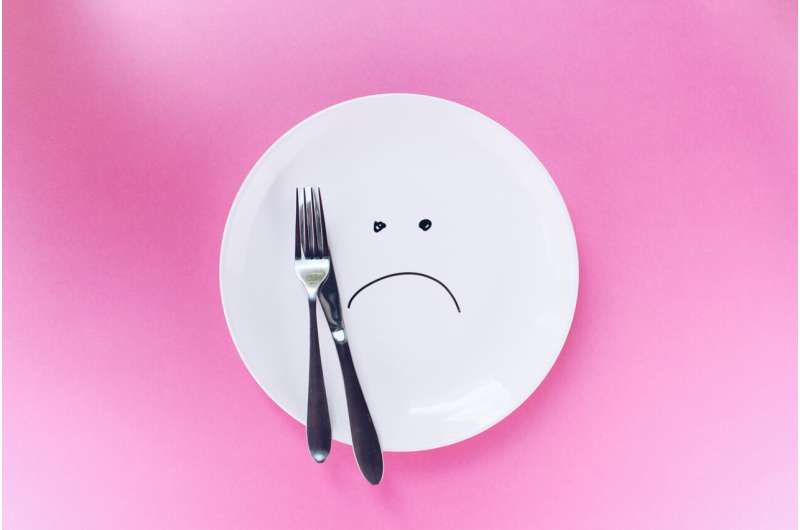This article has been reviewed according to Science X's editorial process and policies. Editors have highlighted the following attributes while ensuring the content's credibility:
fact-checked
reputable news agency
proofread
The negative economics of intermittent fasting

From lots of recent reports—both breathless and scientific— fasting has become a tantalizing path to health. Non-religious fasting can range from 24 hours or more without food to intermittent periods of up to 16 hours a day. It supposedly pushes your cells toward autophagy, from Greek for "self-eating" or "self-digesting," one of the body's housecleaning functions that rids your system of the junk accumulated.
Autophagy may contribute to the prevention of diabetes, dementia and heart, liver and kidney disease; and it's triggered when your energy levels are depleted—that is, when you're hungry.
For a couple of years, Howard Chua-Eoan has practiced intermittent fasting— roughly 16 hours of no calories, plus an eight-hour window to snack, and consume a large evening meal. Charts are all over the web and social media about the ratio of fasting to feeding each day based on one's age. The older you are, the more hours you need to fast because autophagy supposedly slows with the years.
Anyway, the 16:8 seemed to work—until a few months ago. That's when hunger got the better of Howard. Instead of just dinner toward the end of eight hours, he also front-loaded his eating with a hearty lunch at the very beginning of the "free-to-nosh" period." The double-ding has expressed itself on his waistline, he says.
There's little off-the-shelf that will help. Fasting is negative economics: You don't consume anything. When calories come down, it's not good for most businesses—maybe except clothes.
Still, there are ways to monetize fasting, commercial shortcuts to buy your way into the body you want. These measures aren't cosmetic for diabetics and the extremely obese—for whom medical supervision of diets is a matter of life or death—but they are available to those willing to pay to sate their vanity.
Ozempic, the diabetes drug, has a doppelganger in Wegovy to get your weight down. A month's supply of the once-a-week jabs, however, may cost as much as $3,000, according to some estimates. Bodybuilders pursuing a ripped physique have been known to use a much older diabetes drug—metformin—to help them reduce fat in muscle (60 pills cost around $20).
There are substances designed to treat bipolar disorders that can induce autophagy without your having to starve. Depending on the type, bariatric surgery can cost close to $30,000 (or as little as $3,000 if you're a medical tourist in, say, Turkey).
Then, a few weeks ago, the UK's perpetually slim prime minister, Rishi Sunak, revealed that he begins each week with a 36-hour fast. He said the day-and-a-half of deprivation (beginning 5 p.m. Sunday and ending at 5 a.m. Tuesday) plus exercise allowed him to indulge his sweet tooth the rest of the week.
The science itself is relatively new: Autophagy in mammals was first observed in the 1950s and its actual mechanism not documented until the 1990s (both milestones led to Nobel prizes in 1974 and 2016, respectively). Still, advocates of extended and intermittent fasts attribute to autophagy to everything from robust health to improved mental clarity.
It may be triggered between 24 and 48 hours in animals deprived of food. However, we don't know when the process sets in after humans begin fasting—or how much is enough to be effective against illness. It's still not clear how (or if) it contributes to weight loss.
2024 Bloomberg L.P. Distributed by Tribune Content Agency, LLC.




















